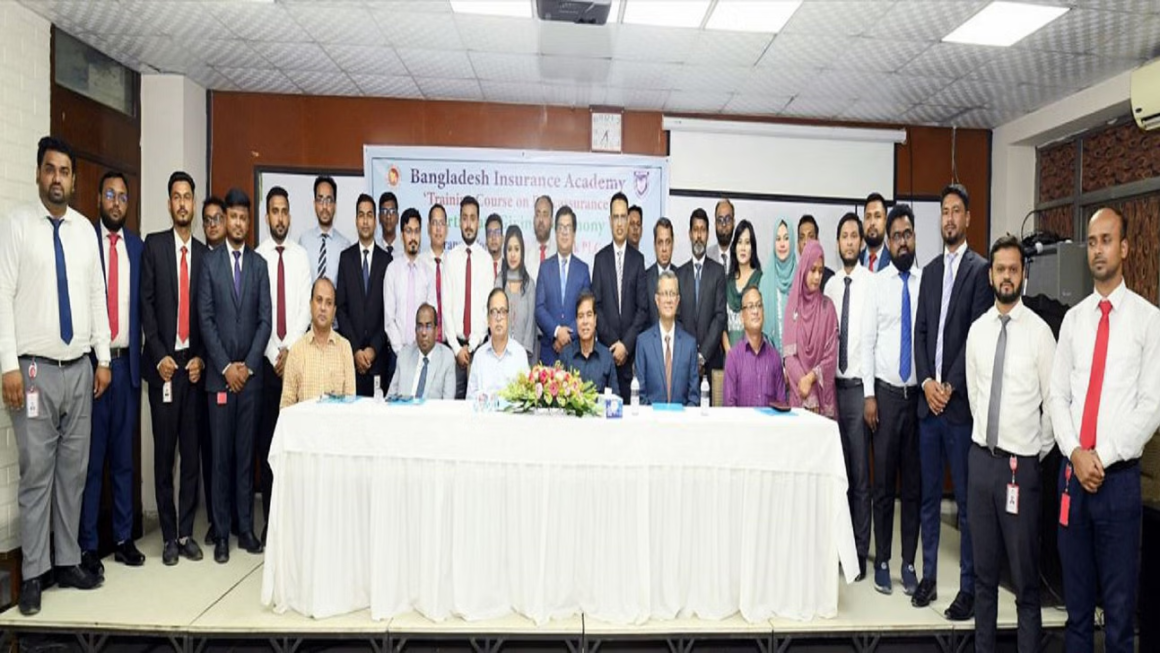The banking sector plays a pivotal role in the economic development of any country, and Bangladesh is no exception. With a diverse financial landscape, Bangladesh’s banking sector encompasses various commercial banks, specialized banks, and foreign banks. In this article, we will explore the key features and contributions of banks in Bangladesh, shedding light on their significance in driving the country’s economic growth.
Commercial Banks in Bangladesh:
Commercial banks form the backbone of the banking sector in Bangladesh. They provide essential financial services to individuals, businesses, and industries, catering to diverse needs such as deposit accounts, loans, trade finance, and other banking products. These banks are further categorized into public and private sector banks.
- Public Sector Banks: Public sector banks in Bangladesh are government-owned and operated. Some prominent examples include Agrani Bank, Sonali Bank, Janata Bank, and Rupali Bank. These banks have extensive branch networks, reaching rural areas and contributing to financial inclusion.
- Private Sector Banks: Private sector banks, on the other hand, are privately owned and managed. They have emerged as significant players in the banking sector and have introduced innovative products and services. Notable private sector banks in Bangladesh include Dutch-Bangla Bank, BRAC Bank, and Eastern Bank Limited.
Here is a list of some of the commercial banks operating in Bangladesh:
- Sonali Bank Limited
- Agrani Bank Limited
- Janata Bank Limited
- Rupali Bank Limited
- BRAC Bank Limited
- Eastern Bank Limited (EBL)
- Dutch-Bangla Bank Limited (DBBL)
- Islami Bank Bangladesh Limited (IBBL)
- United Commercial Bank Limited (UCB)
- The City Bank Limited
- Standard Chartered Bank
- Prime Bank Limited
- Pubali Bank Limited
- Bank Asia Limited
- IFIC Bank Limited
- Southeast Bank Limited
- Al-Arafah Islami Bank Limited
- National Bank Limited
- Social Islami Bank Limited
- Mutual Trust Bank Limited (MTB)
- One Bank Limited
- The Premier Bank Limited
- NCC Bank Limited
- AB Bank Limited
- Mercantile Bank Limited
- Standard Bank Limited
- Trust Bank Limited
- Dhaka Bank Limited
- First Security Islami Bank Limited
- Shahjalal Islami Bank Limited
Please note that the list may not be exhaustive, and there might be other commercial banks in Bangladesh that have been established or undergone changes after my last update. For the most up-to-date and comprehensive list of commercial banks in Bangladesh, it is advisable to refer to official sources or consult recent reports from reputable financial institutions.
Specialized Banks in Bangladesh:
In addition to commercial banks, Bangladesh has specialized banks that focus on specific sectors of the economy. These banks play a vital role in financing targeted industries and economic activities.
- Bangladesh Krishi Bank: Bangladesh Krishi Bank is primarily devoted to agricultural financing. It provides credit and financial support to farmers and agribusinesses, aiming to boost agricultural productivity and rural development.
- Bangladesh Development Bank Limited: As a development finance institution, Bangladesh Development Bank Limited offers long-term financing for development projects. It plays a crucial role in infrastructure development and supporting key economic sectors.
- Rajshahi Krishi Unnayan Bank: Rajshahi Krishi Unnayan Bank caters to the agricultural needs of the Rajshahi region. It serves as an essential financial institution in promoting agriculture and allied activities in the northwestern part of Bangladesh.
Foreign Banks in Bangladesh:
Foreign banks have a presence in Bangladesh, contributing to the country’s international trade and foreign investment activities. These banks facilitate cross-border transactions and offer financial services to businesses engaged in global commerce.
Bangladesh’s banking sector is enriched by the presence of several reputable foreign banks, which play a crucial role in the country’s financial landscape. These banks bring global expertise, international networks, and a wide range of financial services to Bangladesh, contributing to the growth and development of the economy. Let’s take a closer look at some of the foreign banks operating in the country:
- Standard Chartered Bank:
Standard Chartered Bank is one of the oldest and most prominent foreign banks in Bangladesh. It has a strong presence with a significant number of branches, serving both retail and corporate clients. As an international bank, Standard Chartered offers a comprehensive suite of banking products and services, including trade finance, corporate banking, and wealth management. - Citibank N.A.:
Citibank has been operating in Bangladesh since 1987, providing a wide range of global banking solutions to multinational corporations, institutional clients, and high-net-worth individuals. Known for its expertise in trade finance and correspondent banking, Citibank plays a crucial role in facilitating international trade and cross-border transactions in Bangladesh. - HSBC Bank:
HSBC is another well-established foreign bank in Bangladesh. It offers a broad spectrum of financial services, including retail banking, corporate banking, and international trade solutions. With its global network and deep expertise in trade and commerce, HSBC serves as a reliable partner for businesses engaged in international transactions. - Commercial Bank of Ceylon PLC:
Commercial Bank of Ceylon, a leading Sri Lankan bank, has a strong presence in Bangladesh. It offers a wide array of banking services, including retail banking, corporate banking, trade finance, and remittance solutions. The bank’s commitment to customer satisfaction and innovation has made it a trusted partner for individuals and businesses alike. - State Bank of India (SBI):
As the largest bank in India, State Bank of India operates an extensive network of branches in Bangladesh. SBI’s presence is a testament to the strong economic ties between Bangladesh and India. The bank provides a range of banking services to facilitate trade, remittances, and investments between the two countries. - National Bank of Pakistan (NBP):
National Bank of Pakistan, one of the leading banks in Pakistan, has a significant presence in Bangladesh. NBP’s operations cater to trade finance, remittances, and other financial services, strengthening economic cooperation between Bangladesh and Pakistan. - Bank Al-Falah Limited:
Bank Al-Falah Limited, a prominent bank from Pakistan, offers Islamic banking services in Bangladesh. Its Shariah-compliant products and services cater to the growing demand for Islamic finance in the country. - Woori Bank:
Woori Bank, a South Korean bank, has expanded its operations to Bangladesh, providing banking services to support trade and investment activities between Bangladesh and South Korea. - Habib Bank Limited (HBL):
Habib Bank Limited, one of the oldest banks in Pakistan, has a presence in Bangladesh, contributing to the financial sector’s growth and strengthening ties between the two neighboring countries. - The Hongkong and Shanghai Banking Corporation Limited (HSBC):
HSBC, another branch of the global banking giant, operates in Bangladesh, offering a wide range of financial services and expertise to serve the country’s diverse banking needs. - National Bank of Abu Dhabi (NBAD) – Now part of First Abu Dhabi Bank (FAB):
NBAD, now part of First Abu Dhabi Bank (FAB), was a significant player in Bangladesh’s banking sector. The merger with FAB has further strengthened the bank’s offerings and global reach. - NRB Bank Limited (Formerly National Bank of Pakistan (NBP) – NRB Division):
NRB Bank Limited, previously known as the NRB Division of National Bank of Pakistan (NBP), focuses on providing banking services to non-resident Bangladeshis (NRBs) and facilitating remittances from around the world.
The presence of these foreign banks has not only added to the diversity of banking services available in Bangladesh but has also facilitated international trade, investment, and cross-border transactions. These banks have contributed to the country’s economic growth, financial inclusion, and global integration, while also bringing global best practices and cutting-edge technologies to the local banking sector.
Please note that the list may not be exhaustive, and there might be other foreign banks in Bangladesh that have been established or undergone changes after my last update. Additionally, the presence and status of foreign banks may change over time due to various factors, including mergers, acquisitions, and regulatory developments. For the most up-to-date and comprehensive list of foreign banks in Bangladesh, it is advisable to refer to official sources or consult recent reports from reputable financial institutions.
Banking Regulations and Supervision:
The banking sector in Bangladesh is regulated and supervised by the Bangladesh Bank, the central bank of the country. It formulates monetary policies, issues guidelines, and ensures compliance with prudential regulations to maintain financial stability and protect the interests of depositors.
Challenges and Opportunities:
While the banking sector in Bangladesh has shown resilience and growth, it also faces several challenges. Some of the key challenges include non-performing loans (NPLs), liquidity management, cyber threats, and ensuring financial inclusion in remote areas.
On the other hand, the banking sector in Bangladesh has immense opportunities for further expansion and innovation. Technological advancements have opened doors for digital banking and financial technology (fintech) solutions, enabling banks to provide more accessible and efficient services to their customers.
The banking sector in Bangladesh plays a crucial role in supporting economic growth, providing essential financial services, and promoting financial inclusion. The diverse array of commercial banks, specialized banks, and foreign banks contribute to a dynamic financial landscape that continues to evolve with changing times. To address challenges and capitalize on opportunities, the sector must adapt to new technologies and adopt robust risk management practices to ensure sustained growth and stability.











